Since we woke up on November 6 to the devastating news of Donald Trump’s electoral victory, I’ve uncharacteristically been at a loss for words.
If you’ve been here for a while, you may have noticed. There was no monthly bulletin in October. Or in November. No other missives either.
Of course, this is always a busy season. The marathon of holidays and occasions: my son Rohan’s birthday (#11 this year!), Deepavali (also known as Diwali), Halloween, Thanksgiving and now the approach of Christmas and other end-of-year festivities.
But let me be honest.
I’ve been scarce in these parts for a much deeper reason, and that’s because the grief (and anger) I’ve been feeling in this moment is a different sort. This is not a mere political loss. It’s a repudiation of pretty much all the cherished ideals that the United States espouses (at least on paper). But it’s also a slap in the face of one of my own core beliefs: that of our better nature.
Sometimes, I wonder why and how it is that I sustain this belief at the tired, jaded, should-know-better age of 46. I’ve surely seen and experienced too much that should snuff it out altogether.
But I think that in part, this latent conviction of mine is baked into the DNA of all who share the immigrant experience, at least in the case of those who migrate voluntarily or whose forebears do so, such as myself. Leaving home and building a life on the other side of the world requires a certain brand of faith, a scrappiness, a belief in the possibility of better days, in your fellow human.
So yeah, I’ve been feeling pretty shook up.
Of course, I know that I’m not the only one. But in my case, the words just stopped flowing. The well dried up.
Luckily in the days just after the election, I was able to get the hell out of Dodge (as they say), travelling to Rwanda for a galvanizing work engagement. Governments from across the African continent pledged to go all in on ensuring that their children can read with understanding and master the other skills that are essential for success in further education and in life. It was inspiring, especially the time spent in schools and with future teachers. I wrote more about it, in case you’re interested.
On the sidelines, I bought beautiful baskets, artwork and jewelry (are you surprised? lol). We drank wine at the British High Commissioner’s residence and danced to favorite tunes from across the continent. I enjoyed time with colleagues old and new and drank in the views of Kigali’s verdant hills and valleys (Rwanda is called Le Pays des Mille Collines - the land of a thousand hills in French). And I largely avoided the news from back home (though the jumbotron monitor hoisted above the hotel’s swimming pool blaring images from CNN didn’t help).
As previewed in my last essay, we also visited the Kigali Genocide Memorial. Because Rwanda, of course, is where the horrific genocide occurred in 1994, when over 800,000 people - mostly Tutsi - were massacred. A full 30 years ago but forever a part of the Rwandan people and their story. The images and words that we experienced at the memorial were harrowing - I weeped silently throughout. And I certainly wasn’t the only one.
As we lay roses at the memorial’s mass grave site (where 250,000 people are buried), I thought about their tagline: “If peace and reconciliation are achievable after genocide, they are achievable anywhere.” The current fissure in the U.S. is of course not anything close to analogous - it would be disrespectful to suggest that it is - but of course my mind wandered to these questions that have been top of mind: How do we get past a second Trump administration? How will we heal? Will we, ever?
The progress and redemption that Rwanda has achieved are nothing short of remarkable. There are of course many particularities to it that I won’t get into here, but it struck me that there are some core parts of their approach that may be relevant for us or for any place that’s experiencing discord and division.
One might be the way in which they reckon with this horrible history. In a tiny country such as Rwanda, there’s no turning away from it: every single family was affected. But the deliberate emphasis on peace education - as part of the national school curriculum and broader discourse - is notable.
Much like in Germany and other places, they don’t deny or shy away from discussing the horrible things that happened. It seems to suggest that confronting the ugly parts of our history is a necessary precondition for moving forward as a people. Not whitewashing, banning books or glossing over. It seems a lesson we need to learn.
Rwanda also observes Umuganda, a national holiday on the last Saturday of every month in which all citizens participate in mandatory community service, such as neighborhood cleanups. That certainly wouldn’t work in most places, but I think there’s something to be said for finding common cause with your neighbors and working together to make your community better. In a sense, these are the spaces in which we already show up the most consistently - our neighborhoods, places of worship, schools, workplaces, cities. Maybe that’s a starting point. Rwanda suggests that it can be a transformative one.
It reminded me of work that I did over a decade ago, on the concept of “learning to live together” and how different societies have attempted to cultivate this learning through schools. Maybe it’s time to revisit this work. It is, I believe, the work.
If Rwanda was a time of reflection and absorption, the last couple of weeks have been largely the same - in a different way. Words may not be flowing for me these days, but small joys have been abundant. And let me tell you, I’ve been clinging to them like lifeblood, because it seems crucial to fill up my cup.
Many of you have expressed similar sentiments. Most people I know are unplugging from the news and disassociating from the knowledge of the coming onslaught. We’re tired as all hell, weary, not sure what comes next. Leaning into our families, friends, communities - this seems to be the only balm.
So yes, we put up the Christmas tree early and are watching all the cheesy holiday movies. I’m cooking cozy things like lentil soup and drinking chamomile tea, with the low hum of Great British Bake Off in the background. I’m finding new ways to support the ongoing recovery effort in Treasure Beach - opportunities that give me joy. Getting into a consistent exercise groove and feeling stronger by the day. Remembering the beauty of winter sunsets. Making a mad dash to hit my reading goal for the year, spending indulgent evenings in bed with some pretty delicious books. A lovely Thanksgiving with my parents in Atlanta, where we feasted on saag paneer lasagna and tamarind-maple brussels sprouts.
Small things, all of them.
Because here’s the thing about joy: it may not have been a winning political strategy, but it sure as hell seems to be a necessary precondition for the resistance that we will have to conjure and build in the weeks, months and years to come.
So I’ll take all that I can get, thank you very much.
Signing off here, I realize that maybe I’m not at a loss for words anymore. Thank goodness!
This being so, you’ll soon be receiving my last roundup of 2024 - covering not just one month but the whole last quarter. I promise it will be filled with small and big joys of all shades - so please stay tuned. I’ll then bid farewell to the year with a reflection and relaunch of this platform - with a new name! I’m so excited to share it with you and deeply thankful for your sojourn here with me - even when words fail.


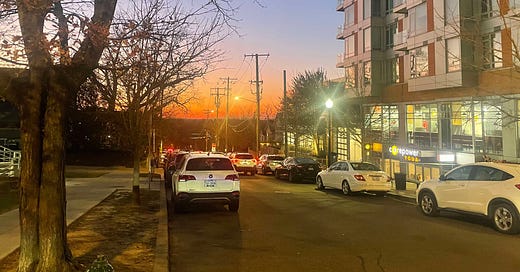




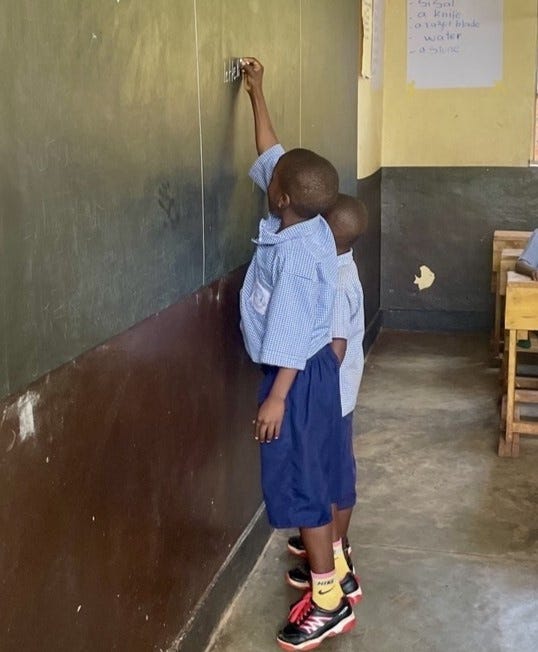
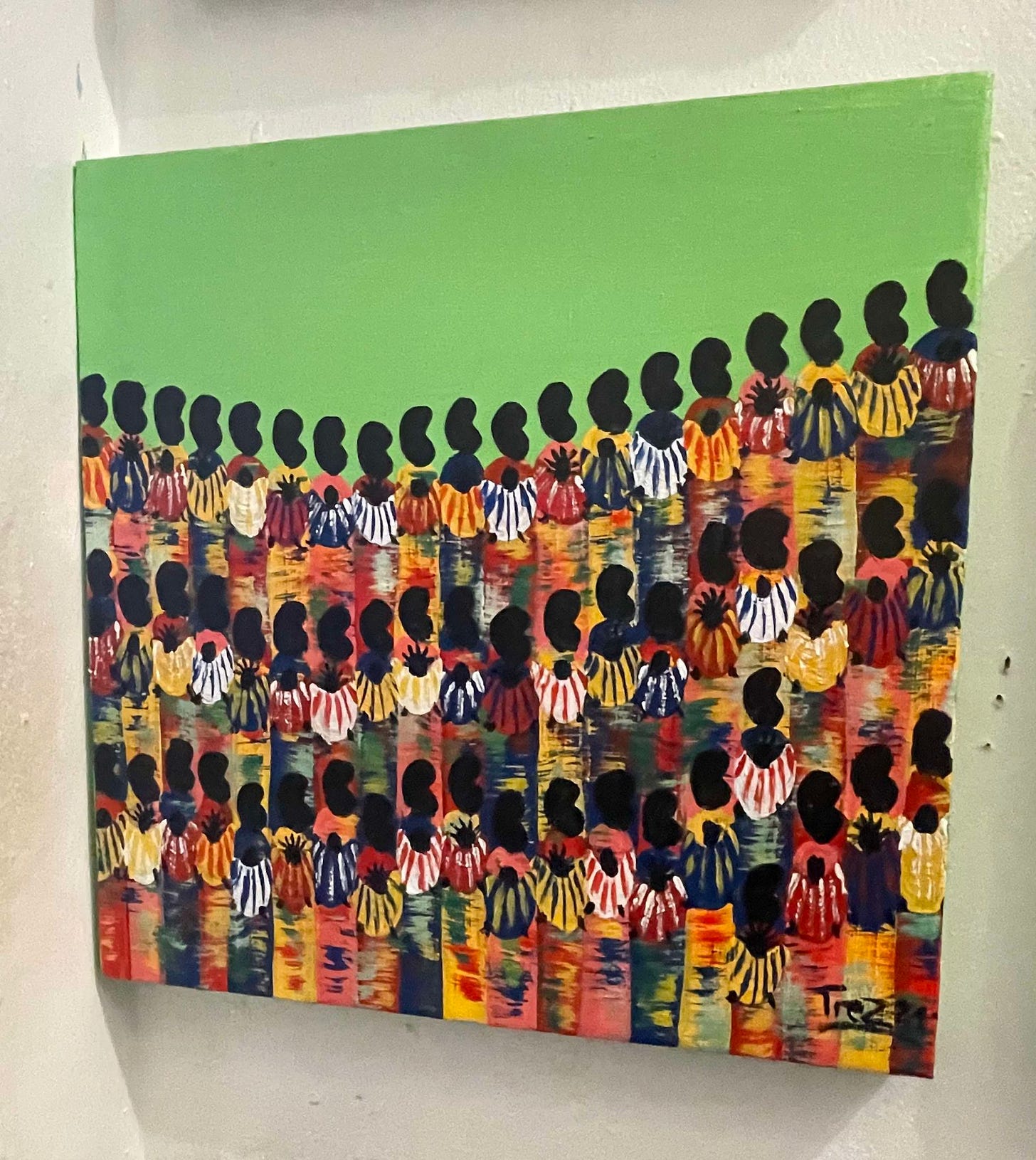

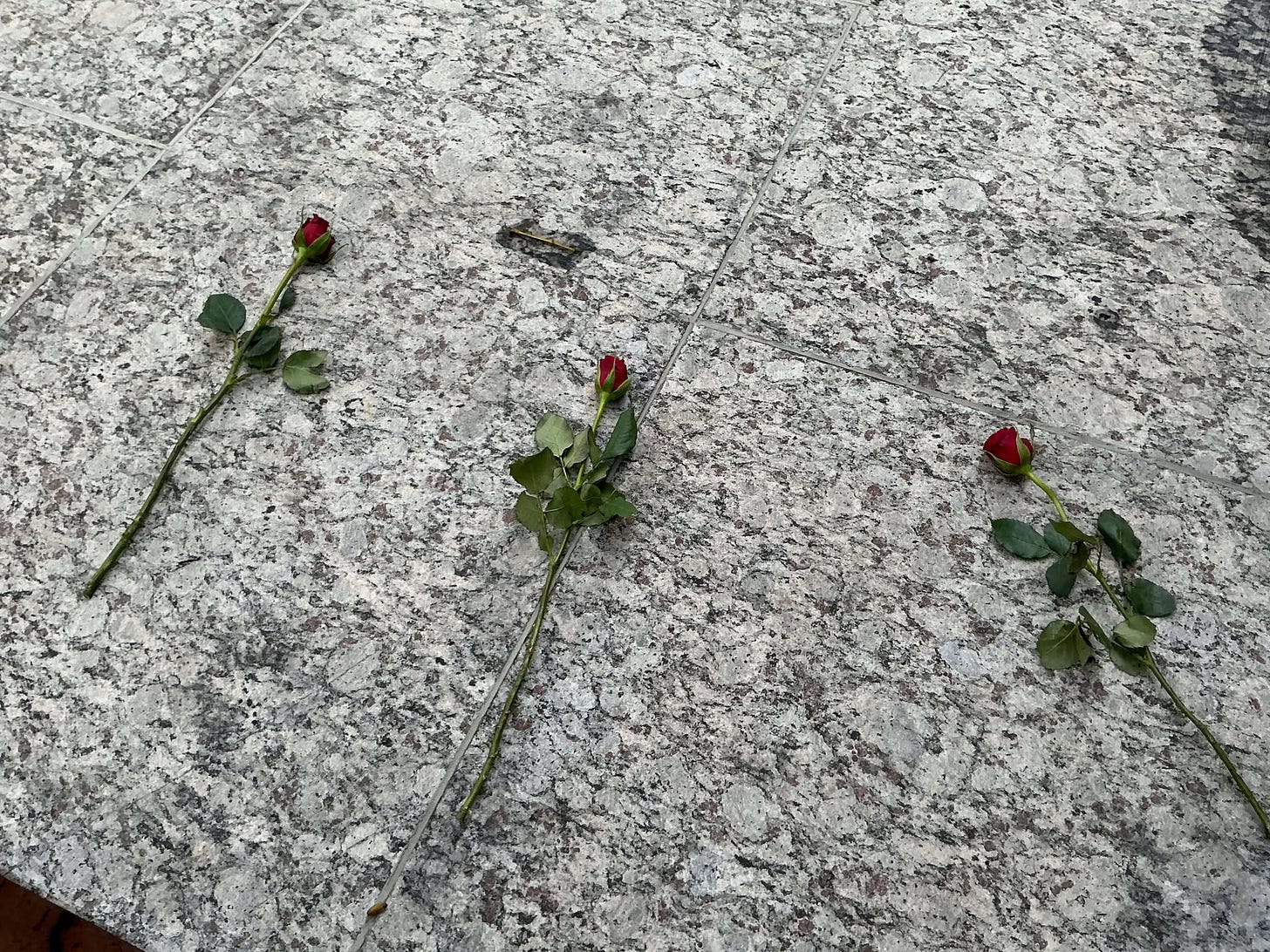

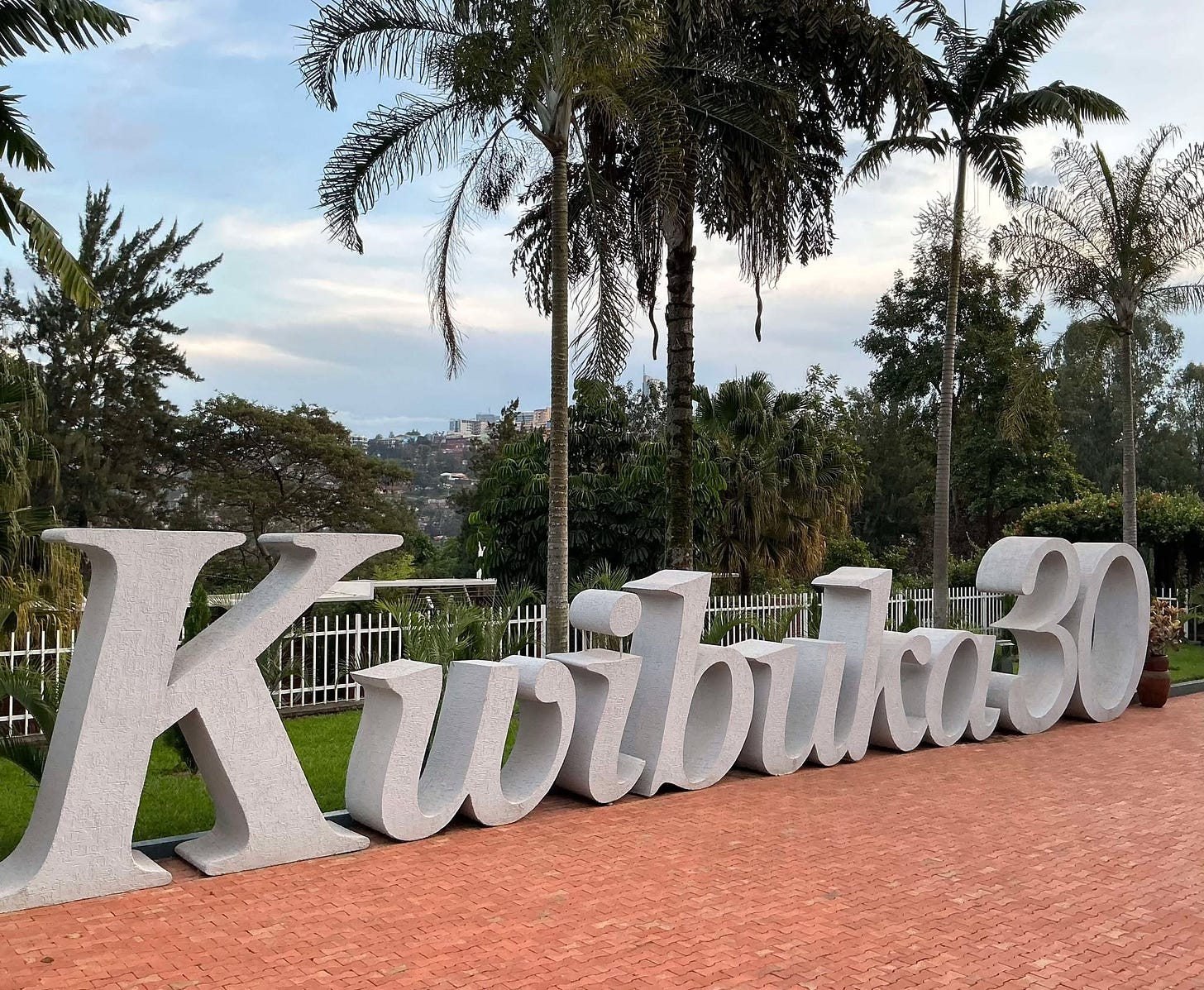
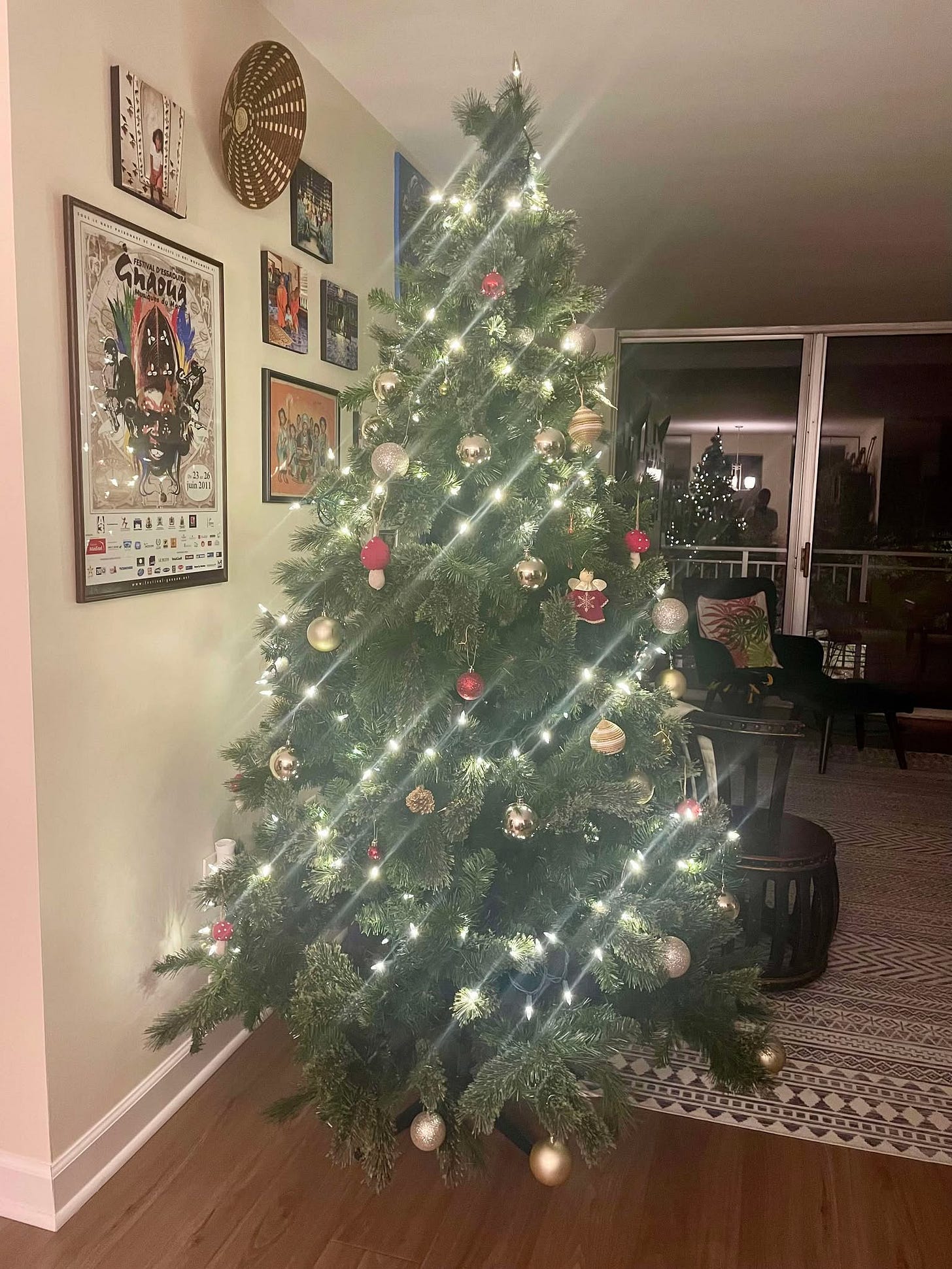
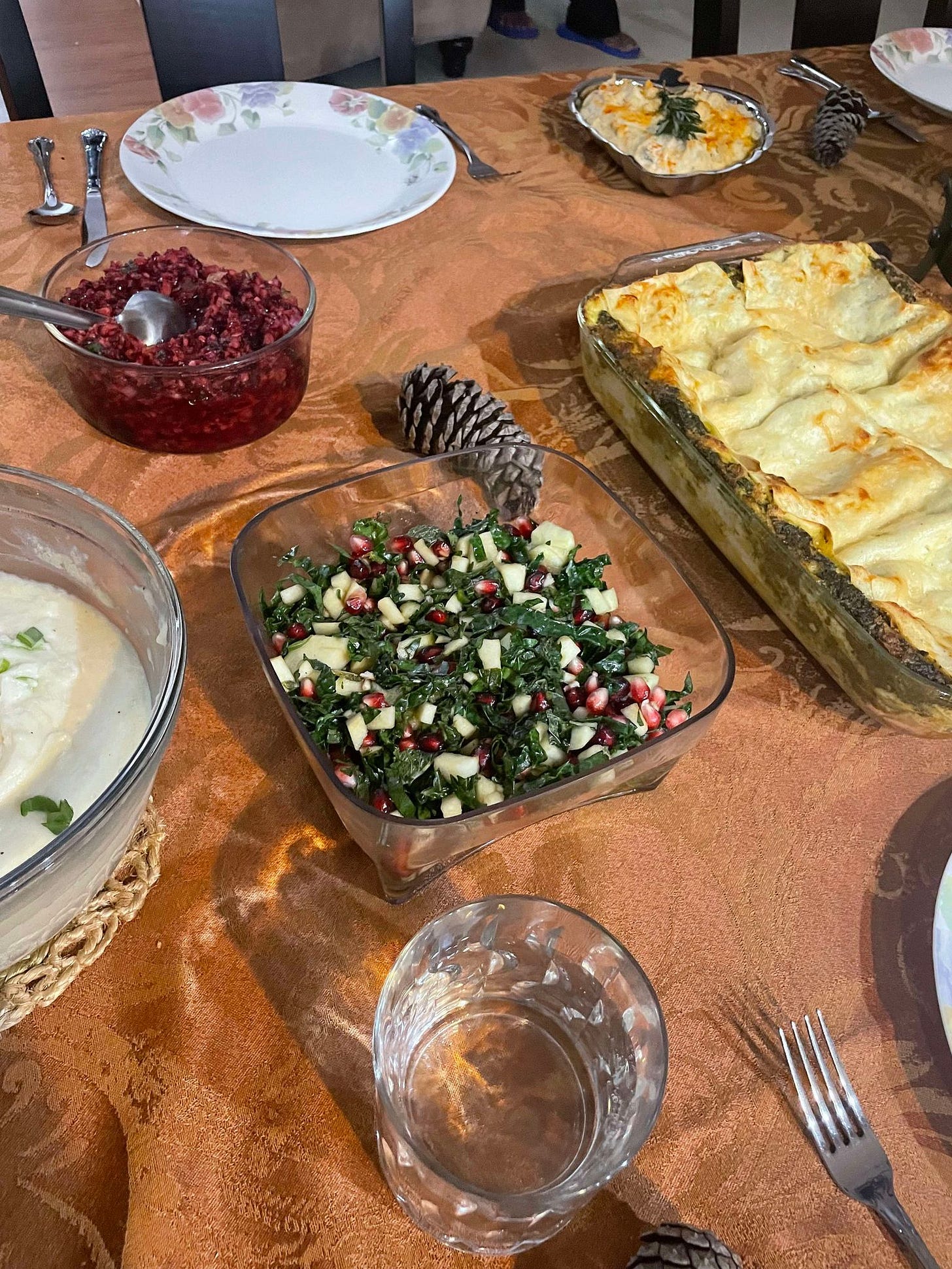
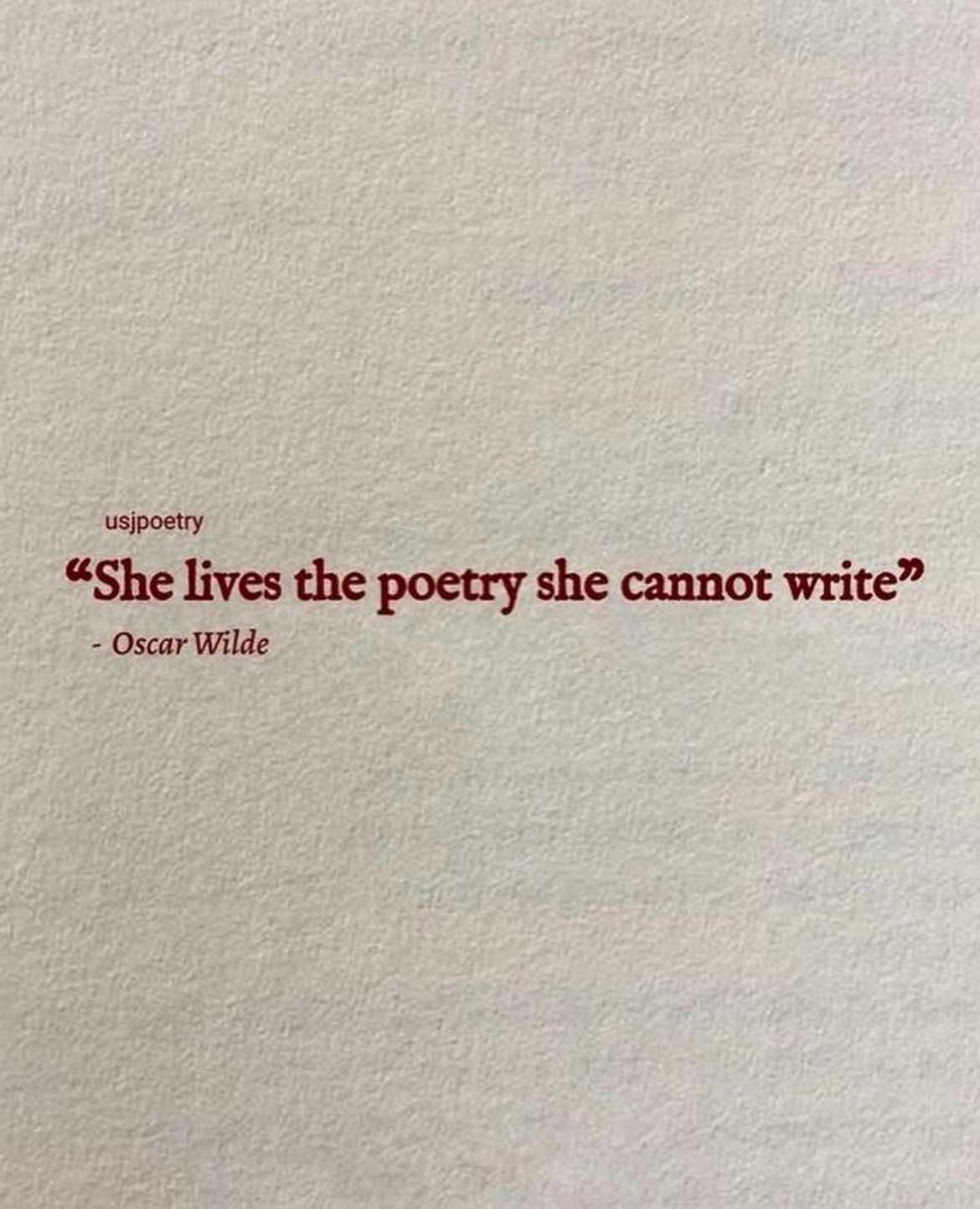
You do important work, Ramya. And the sentiments in this post is a part of that work. Thanks for sharing.
I really feel you. I don't live in the US, I'm not a citizen, but it hit me so hard for some reason.